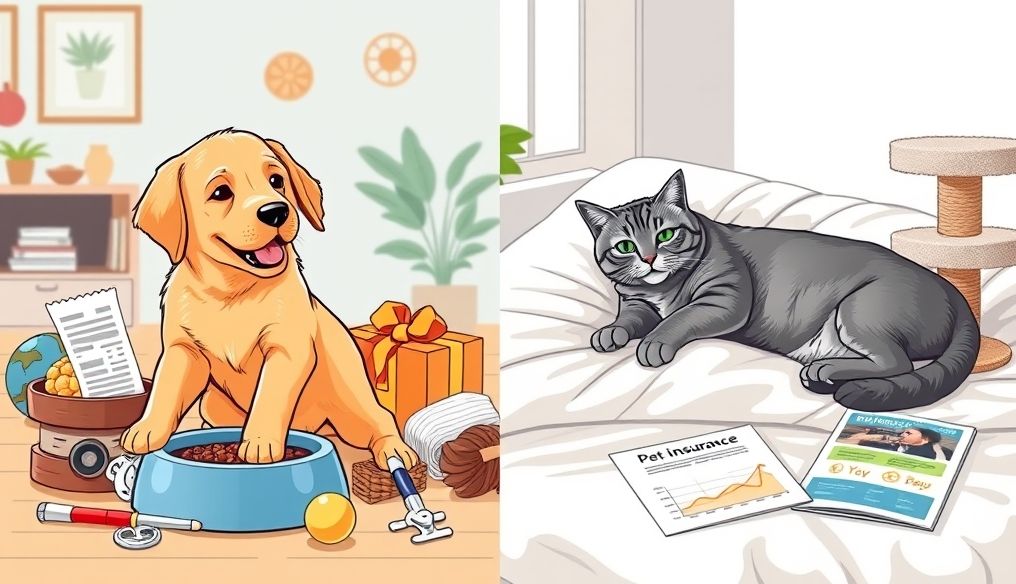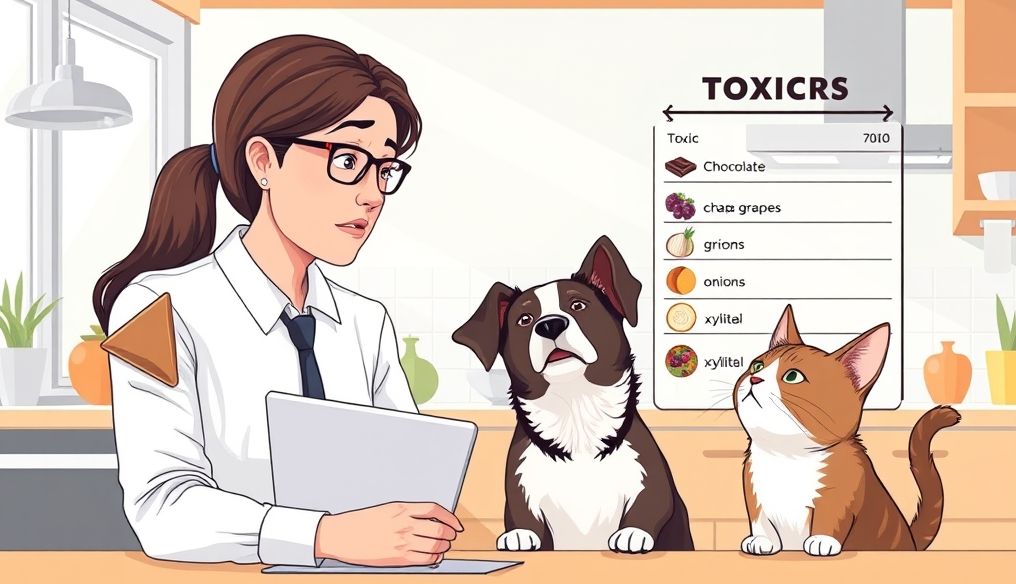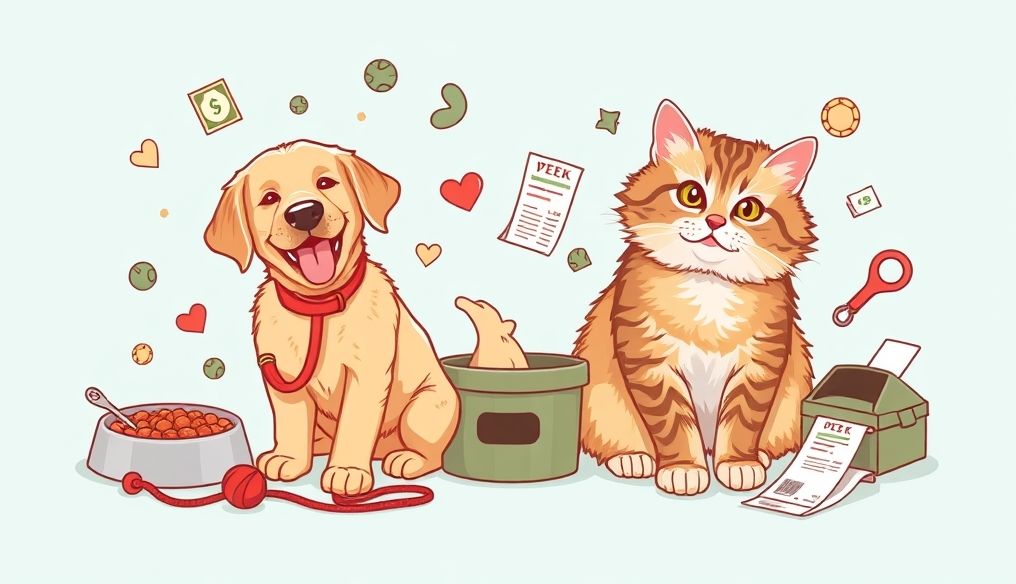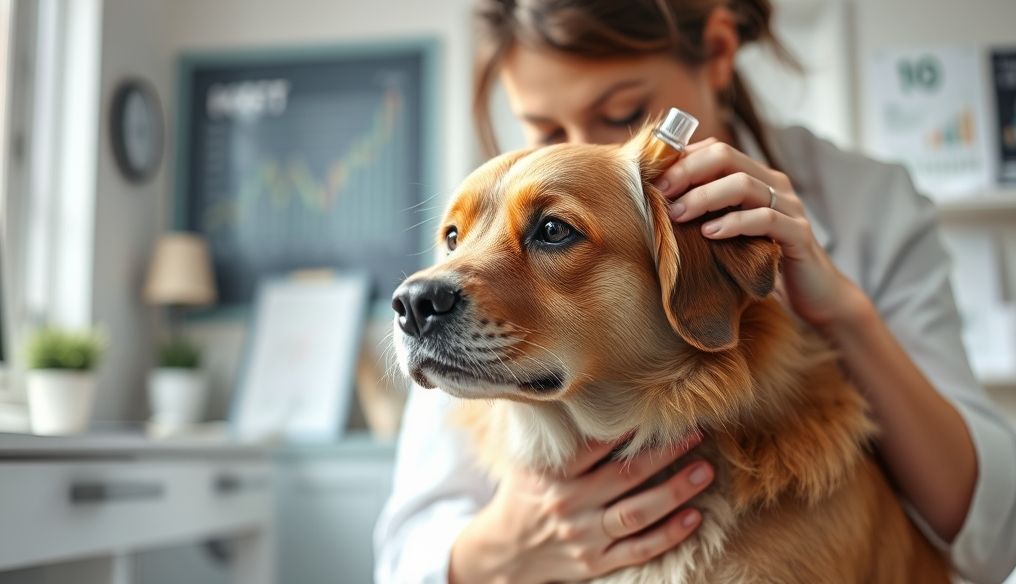What are the Real Costs of Owning a Cat or Dog and How Can You Smartly Plan for Them?
Owning a pet, whether a cat or a dog, is a decision that brings joy and companionship, but it also requires a financial commitment. In this article, we will explore the hidden and apparent costs of owning a pet and how to plan your finances smartly to ensure a happy and healthy life for your new companion.
1. Initial Costs: More Than Just the Purchase Price
The price of buying or adopting a pet may be the first thing that comes to mind, but it's just the tip of the iceberg. Initial costs include:
- Adoption fees: Often lower than the purchase price from a breeder, and cover initial vaccinations and spaying/neutering.
- Vaccinations and deworming: Essential to protect your pet from diseases.
- Spaying/Neutering: Reduces the risk of diseases and contributes to controlling animal populations.
- Microchipping: Helps to recover your pet if it gets lost.
- Basic Supplies: Food and water bowl, bed, litter box (for cats), leash, collar, toys.
2. Recurring Costs: Food and Healthcare
Recurring costs include the repeated expenses you will incur throughout your pet's life:
2.1. Food: Food Quality Affects Health
Choose high-quality food that suits your pet's age, size, and activity level. Cheap food can be more expensive in the long run due to the health problems it may cause.
- Cats: Need food rich in protein and low in carbohydrates.
- Dogs: Nutritional needs vary depending on breed, size, and activity.
2.2. Healthcare: Regular Veterinary Visits
Regular veterinary check-ups are essential for early detection of health problems. Costs include:
- Annual vaccinations: To protect your pet from common diseases.
- Dental check-ups: To maintain oral health and prevent gum problems.
- Parasite treatment: Such as fleas, ticks, and worms.
- Pet health insurance: Can help cover expensive treatment costs.
2.3. Grooming Supplies: Maintaining Personal Hygiene
Grooming supplies include shampoo, hairbrush, nail clippers, and pet toothpaste.
3. Emergency Costs: Unexpected But Inevitable
Accidents and illnesses can occur unexpectedly and may require expensive treatments. It is important to be prepared for these possibilities.
- Accidents: Such as fractures and wounds.
- Diseases: Such as urinary tract infections, diabetes, and cancer.
- Surgery: May be necessary to treat certain conditions.
4. Additional Costs: Comfort and Entertainment
You may want to pamper your pet with some luxuries:
- Toys: To stimulate your pet and prevent boredom.
- Trainer: To teach your pet obedience and good behavior.
- Pet sitter: To care for your pet while traveling.
- Grooming salon: For haircuts, bathing, and nail care.
5. Smart Financial Planning: How to Manage Costs Effectively
To avoid financial surprises, it is important to plan ahead and allocate a budget for your pet.
- Create a budget: Determine how much you can spend monthly on your pet.
- Look for deals and discounts: Compare prices between stores and veterinary clinics.
- Consider health insurance: It can provide peace of mind and help you cover emergency costs.
- Set up an emergency fund: To cover unexpected expenses.
- Make your own toys: Can be an economical alternative to commercial toys.
6. Adoption vs. Purchase: The Best Option for You
Adoption is a great option to save the life of a needy animal and save money. Adoption fees are often lower than the purchase price, and include initial vaccinations and spaying/neutering.
7. Impact of Pet Size and Breed on Costs
Large dogs require larger amounts of food and medicine, and may be more prone to certain diseases. Some breeds require special care, such as regular hair trimming.
8. Tips for Saving Money on Pet Care
- Prepare your pet's food at home: Can be a healthy and economical alternative to commercial foods.
- Take care of your pet's teeth regularly: To prevent costly dental problems.
- Exercise with your pet regularly: To maintain their health and reduce the risk of disease.
- Look for non-profit veterinary clinics: Often offer affordable services.
9. Legal Responsibility: What You Should Know
You should be aware of local laws regarding pets, such as licensing, vaccination, and animal control requirements.
10. Emotional Readiness: A Long-Term Commitment
Owning a pet is a long-term commitment, and you must be prepared to provide love, care, and financial support to your pet throughout its life.
In conclusion, owning a cat or dog requires good financial planning. By understanding the different costs and taking steps to reduce expenses, you can provide a happy and healthy life for your pet without emptying your wallet.




